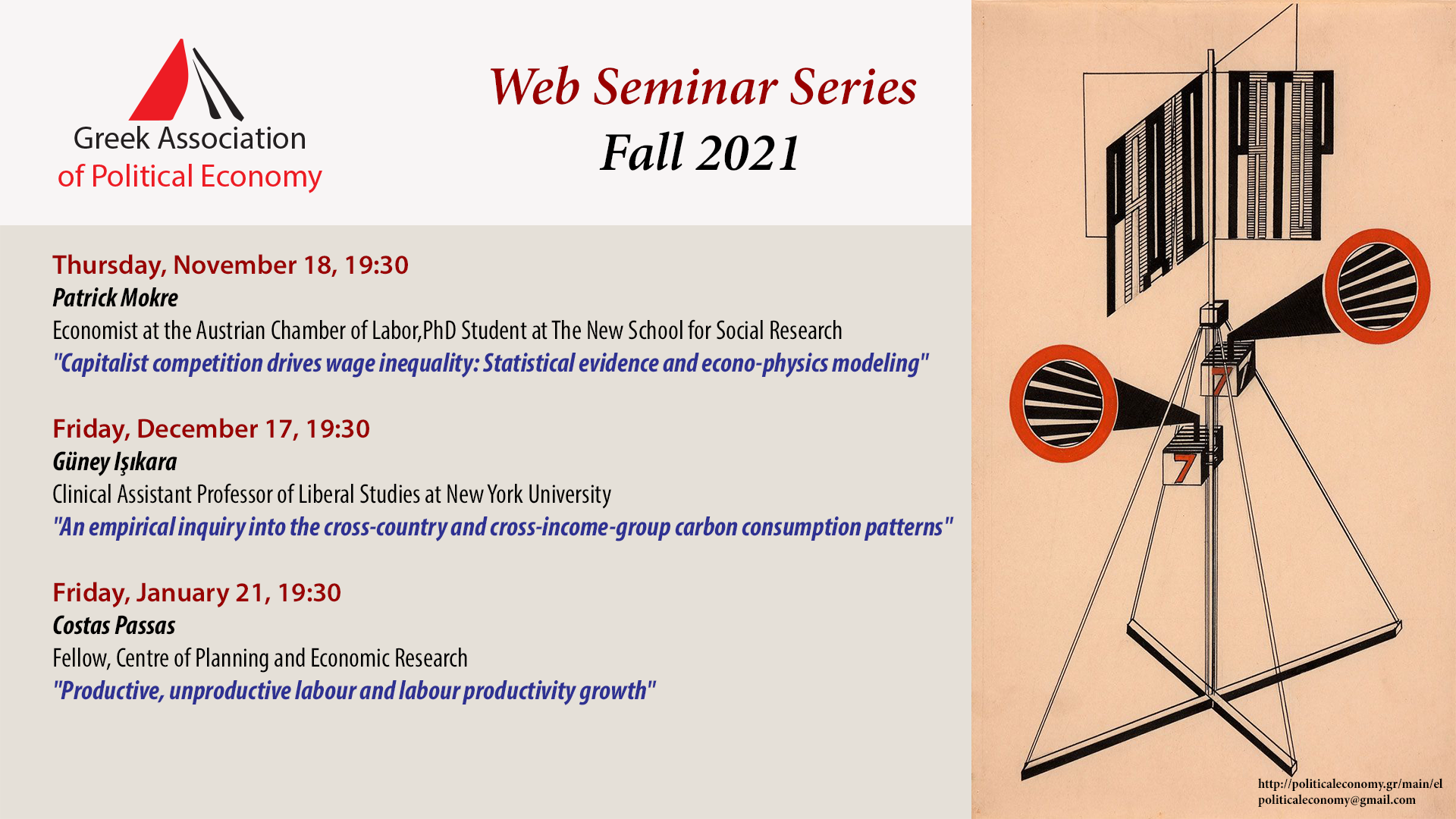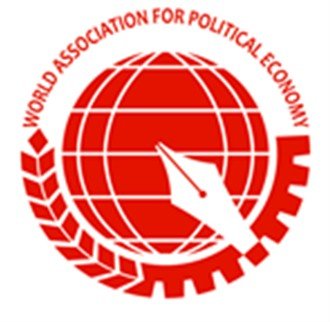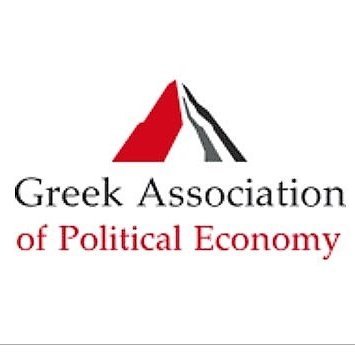1st GAPE Web Seminar (Fall 2021). P. Mokre: "Capitalist competition drives wage inequality: empirical evidence and econo-physics modeling"
In November 18, 2021, Patrick Mokre from New School for Social Research will deliver the first GAPE web seminar for Fall 2021 titled as “Capitalist competition drives wage inequality: empirical evidence and econo-physics modeling”.
Meeting Information
Date: November 18, 2021. Time: 19:30 (12:30 New York Time)
Meeting link:
https://uoa.webex.com/uoa/j.php?MTID=m7353c134b472f8537bc7b9cf70ab4e03
Meeting number: 2732 845 7073
Abstract of the seminar
Competition and inequality are ubiquitous and defining features of capitalism. My presentation to the GAPE web seminar series spans my entire dissertation project, in which I develop a Classical Political Economics theory of wage inequality. My work extends Anwar Shaikh’s model of real competition and Howard Botwinick’s application to persistent industrial wage inequalities.
Botwinick derived persistent wage inequalities from turbulent profit rate dynamics. I add a dynamic of turbulent equalization of wages and provide empirical evidence on the industry aggregate as well as the individual worker level. The turbulent processes in firm profits and worker wages are linked, with a significant and substantial impact of regulating profit rates on wage increases.
I argue that the intertwined processes are the link between competition and inequality and present a stochastic differential equation model (sometimes referred to as drift-diffusion, Fokker-Planck equation or Kolmogorov forward equation model) of wage increases as the mathematical explanation for the stationary distribution of wages. When I calibrate a simple SDE with US wage data (Funk 2012), the corresponding parameter transformation to the cross-sectional Gamma probability density function (Fischer 2018) is very close to the empirical inter-industry wage distribution.
The results suggest that, as Marx put in the Grundrisse, “competition among workers is only another form of the competition among capitalists” in three ways. (Marx 1999, 651) The dynamics of profits and wages (1) follow a similar pattern, (2) the wage dynamic is induced by firm dynamics and (3), the interaction of the two provide an explanatory model for the form and extent of wage inequality in capitalism.
Here you can download the full paper:
/main/sites/default/files/twi20-outline.pdf




